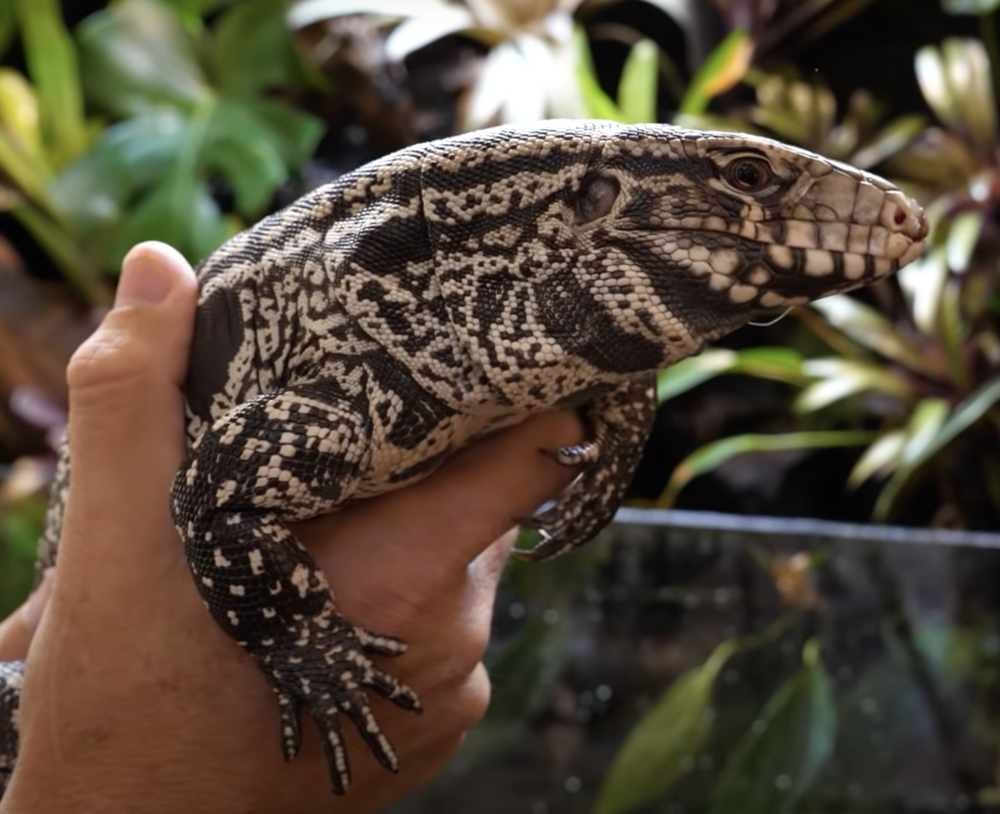
Caption
Michelle Watts, Justyne Lobello and John McHugh opposed the change to the reptile regulation.
Credit: Mary Landers, The Current
Burmese pythons have settled into the Florida Everglades and are wiping out native animals. Georgia isn’t taking any chances with repeating that mistake here.
On Tuesday, the Georgia Department of Natural Resources Board voted to limit future ownership of Burmese pythons, along with Indian rock pythons, Argentine black and white tegus, Nile monitor lizards, African helmeted turtles and Chinese softshell turtles. Current owners in Georgia have 12 months to get their pet snakes, lizards or turtles tagged and registered with the Department of Natural Resources following the adoption of a rule that limits licensing of these species only to those used for scientific, educational or public exhibition. The rule goes into effect next month.
Python enthusiasts, including a couple who breeds the snakes in Brunswick, spoke passionately against the rule change at the DNR meeting in Richmond Hill.

Michelle Watts, Justyne Lobello and John McHugh opposed the change to the reptile regulation.
“We propose a new solution allowing people to register certain species of animals that have a proven scientific concern to DNR in regards to ecological and species conservation efforts to allow DNR to track these animals should they escape,” said Justyne Lobello, the president and founder of the Georgia Reptile Society. Lobello owns a 13.5-foot, 180-pound Burmese python named Paula Deen, who serves as an animal ambassador.
“She is requested by name,” Lobello said of her butter-colored pet. “She is very, very famous animal. She has been on National Geographic.”
Brunswick-based John McHugh and his wife Michelle Watts moved their snake breeding business, Egg Tooth Reptiles, from Florida to Georgia recently specifically because the state didn’t have these regulations. They estimate they have $100,000 invested in their animals.
“It takes three years and $3,000 just to get a female breeder up to size,” he said.
Watts tearfully pleaded their case to the board. “This is what we love to do,” she said. “These animals are stress relievers.”
But Mike Worley of the Georgia Wildlife Federation doesn’t get the same warm and fuzzy about pythons and tegus and said with invasives threatening 42% of endangered or threatened species, the regulation was overdue.
“Burmese pythons have absolutely devastated the Everglades and all the literature points to two potential sources: the conscious release of pets that became too much for their owners and the accidental or unforeseen release via breeding facility damage,” he said. “Voracious tegu lizards are already established in South Georgia where they’re likely feeding on eggs of our ground nesting birds our native reptiles and virtually anything else that is small enough for them to eat. The risks these invasives entail is simply too high to allow.”

The Georgia DNR is working to assess and eradicate a wild population of Argentine black and white tegus in Toombs and Tattnall counties in southeast Georgia.
Along with the fears of species like tegus establishing breeding populations in Georgia, Burmese pythons can also carry a parasitic lungworm that’s not harmful to them but can kill native species of snakes, said Brett Albanese of the DNR’s Wildlife Conservation Section.
McHugh countered that his captive bred snakes don’t carry this disease. He and Watts say the rule will punish responsible owners and breeders, but won’t stop illegal trade.
“These bills don’t do anything,” said a frustrated Watts after the rule change passed. “It’s like me coming into your house and taking your cat because there’s feral cats outside. It doesn’t solve the problem.”
Animals can be sold, transferred and transported within the 12-month period as long as they are tagged and registered before the end of the 12-month period. Importation or breeding of animals won’t be allowed after the effective date of the rule, expected to be some time next month.